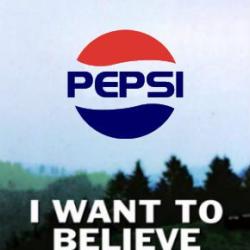Radley Balko: “That Big Thing Everyone Is Talking About Today“
The president said that if you were brought to this country at a young age, by no choice of your own, which is to say that if the United States has been your home for as long as you can remember … we will no longer put you handcuffs, put you on a bus or plane, then dump you in a country where you might have been born, but that is otherwise completely foreign to you.
Somehow, this is controversial?
In a humane, sane world, the country’s collective reaction to today’s announcement would have been, You mean until now, we were actually doing this to people? What the hell is wrong with us?
Diane McWhorter: “The Strange Career of Juan Crow“
If Alabama, the cradle of the civil rights movement, can retool Jim Crow as Juan Crow, what have we learned?
Since Alabama has no foreign border and a Latino population of less than 4 percent, the main purpose of H.B. 56 seems to be the id-gratification of tribal dominance and its easy political dividends. A bill co-sponsor, State Senator Scott Beason, was frank about his motive: “when their children grow up and get the chance to vote, they vote for Democrats.”
Mr. Beason, who was later caught referring to blacks as “aborigines,” is from a predominantly white suburb of my hometown, Birmingham, which is gearing up for the 50th anniversary of our civil rights milestones of 1963: fire hoses and police dogs turned on child marchers and a church bombing that killed four black girls.
… The yearlong anniversary is shaping up to be Groundhog Day. Among other injustices, H.B. 56 bars undocumented residents from pursuing work or entering into any state-related business transactions or private contracts, depriving them of basic dignities and due process. When the Justice Department investigated the state for demanding checks on schoolchildren, the defiant reaction of Alabama’s attorney general prompted comparisons to George C. Wallace’s 1963 “Stand in the Schoolhouse Door” at the University of Alabama.
Melissa Harris-Perry: “Fear Is Driving America’s Politics, But Hope Is the Only Antidote“
My enslaved grandmother who was sold on a street corner in Richmond, Virginia, believed in God. Now, I’m not asking you to believe in God; I’m asking you to think about this: This is a woman who never knew anything but slavery for herself, never knew anything but slavery for everyone she’d ever been related to, never expected anything but slavery for all of the people she would be related to in the future. There was no empirical evidence that any being cared about her circumstances. There was no empirical evidence that there was a loving God who had any power. And if there was a loving God, he was pretty pitiful, or if he was powerful, he didn’t seem to love her.
I’m not asking you to believe in God or to accept any kind of supreme being. I’m asking you to think about the faith that is associated with the hope that is not necessarily rooted in the empirical realities you see around you right at this moment, that says that we can still be part of something that is bigger than ourselves, and something that we cannot necessarily see at the moment, but simply requires us not to be afraid of each other. Because it’s our fear of each other that makes us exceptionally easy to divide.
Colin Harris: “Why Do We Fear Others Who Are Not Like Us?“
The gospel message seems pretty clear on what to do with the “other” – see the face of Christ in their faces: “I was hungry and you gave me food, I was thirsty and you gave me something to drink, I was a stranger and you welcomed me …”
If people stopped responding with passive complicity to carefully crafted messages designed to “otherize” those whose needs deserve fair treatment and justice and those whose voices speak for them, certain media outlets and popular personalities might soon be out of business.
In the face of powerful forces that depend on otherization for the success of their agenda, would it be reasonable to hope that communities of faith might model and speak for a perspective that sees diversity and otherness as an opportunity for enrichment of our community rather than as a threat of contamination?












